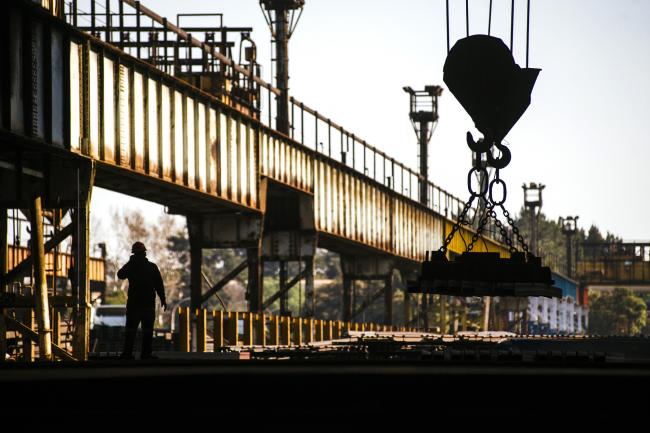(Bloomberg) -- South Africa has asked the U.S. to not implement punitive tariffs that could make its economy collateral damage in the trade war with China, according to the nation’s Trade Minister Rob Davies.
“We are asking the U.S. to back away and not to subject us to this,” said Davies in an interview in Bloomberg’s Johannesburg office on Tuesday. “We are collateral damage in a war you are fighting with someone else, in a war not of our making.”
South Africa has been hit by steel and aluminum tariffs and the detrimental effect could be exacerbated if they are extended to the automotive industry, which the minister said accounts for about 7 percent of South Africa’s economy. In response, the nation could remove U.S. poultry concessions, though that is subject to a court application by South African producers and may not be a decision that is taken directly by government, Davies said in an interview with Bloomberg Television.
Farming Goods
Local producers are putting pressure on the government to retaliate and place tariffs on imports of beef, poultry and pork from the U.S. In 2016, South Africa retained preferential access for its farming goods to the world’s biggest market under the African Growth and Opportunity Act after meeting benchmarks set by former U.S. President Barack Obama to allow the import and sale of U.S. meat products.
More than a third of U.S. imports from South Africa in 2017 was covered by AGOA, with transportation equipment including cars and components being the biggest contributor.
Further tariffs on South African produced vehicles and components that are currently part of the AGOA deal would hurt the local manufacturing industry and lead to a job losses, Davies said. That may harden calls for South Africa to retaliate, he said.
“If you take out autos, iron and steel and you take out aluminum, what is theremaining value for us of AGOA,” he said. “This is not just a one-way street and our constituents will respond and who knows where that will take us.”
